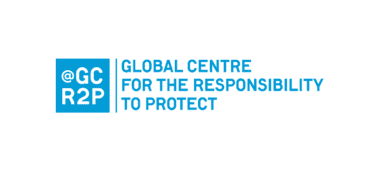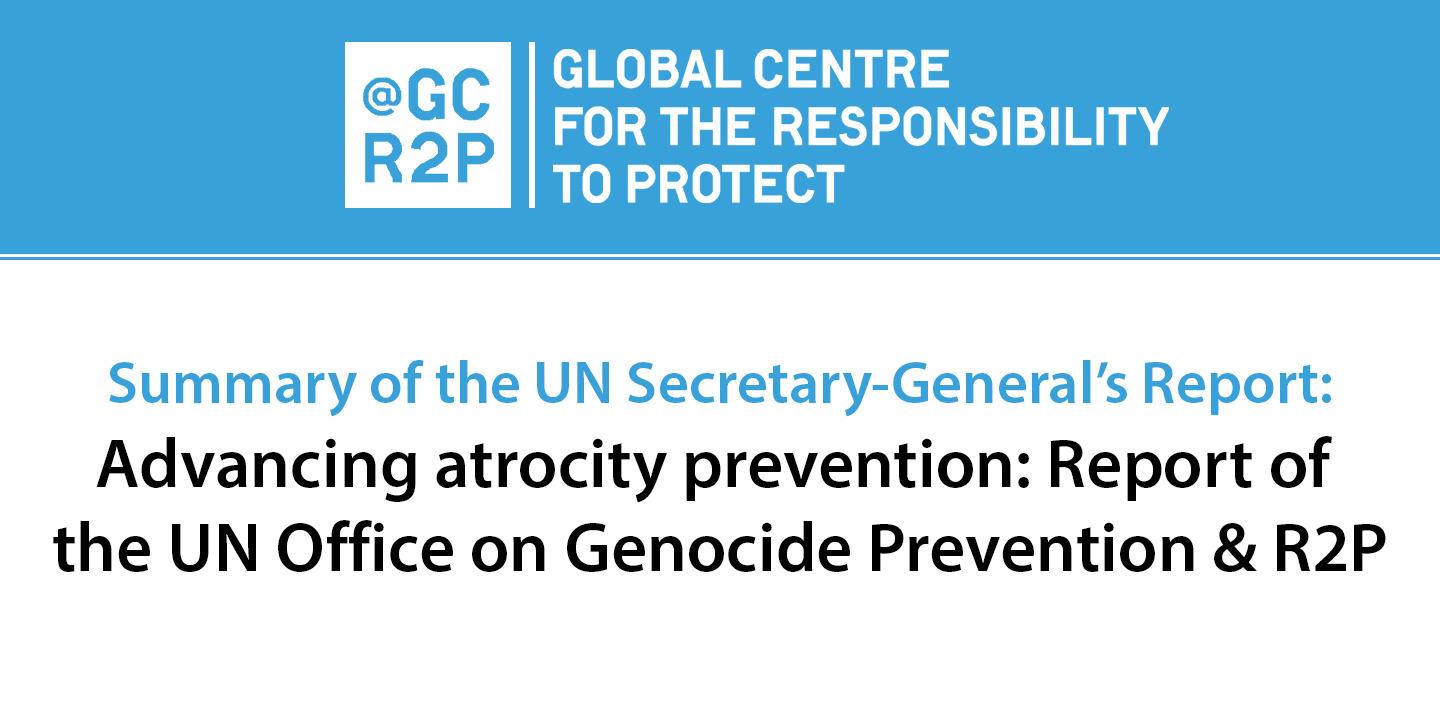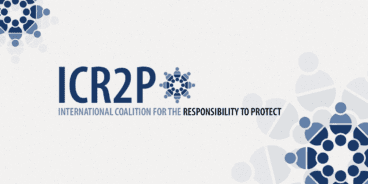

Summary of the UN Secretary-General’s 2021 Report on R2P, Advancing atrocity prevention: Report of the United Nations Office on Genocide Prevention and the Responsibility to Protect
The thirteenth report of the UN Secretary-General on the Responsibility to Protect (R2P), entitled “Advancing atrocity prevention: Report of the United Nations Office on Genocide Prevention and the Responsibility to Protect,” reflects on how the UN has operationalized R2P through its prevention, early warning and response work. In doing so the Secretary-General provides an overview of how the UN Office on Genocide Prevention and the Responsibility to Protect (“the Office”) has led the UN’s efforts to halt the commission of genocide, war crimes, crimes against humanity and ethnic cleansing.
KEY POINTS
The Global Centre for the Responsibility to Protect would like to highlight the following key points from the report:
• Systematic and grave human rights violations, widespread impunity, hate speech, exclusion and discrimination can all increase the risk of atrocity crimes. Prioritization of prevention remains crucial. Atrocity prevention should be integrated into all relevant fields of the work of the UN.
• Timely, reliable and accurate information on current and emerging human rights crises and atrocity situations is essential. The UN Framework of Analysis for Atrocity Crimes is useful for identifying structural risk factors for atrocity crimes and may aid in mobilizing preventive measures.
• The Secretary-General’s “Call to Action for Human Rights” puts human rights at the center of UN action in areas central to upholding R2P.
• Working in coordination with various UN departments and field presences, the Office provides support to member states, as well as regional and subregional organizations, to help mitigate the risk of atrocity crimes and support populations at risk. Such efforts aid in establishing a complementarity between national, subregional, regional and international initiatives to prevent atrocities.
• A people-centered approach that includes the perspectives and priorities of both survivors of violence and agents of change continues to be at the forefront of the UN’s atrocity prevention work. The Office invests in building the capacity of civil society and strengthening women’s roles in atrocity prevention.
• A key part of the mandates of the two Special Advisers involves advising member states, UN bodies and regional organizations on measures to mitigate the risk of atrocity crimes. Issuing joint statements on country situations and having access to brief the UN Security Council and Human Rights Council are integral to upholding this mandate.
• The Office’s investment in two priority fields – engagement with religious leaders and actors and countering and addressing hate speech – have had an important impact on the prevention of incitement to violence and atrocities.
The thirteenth report of the UN Secretary-General on the Responsibility to Protect (R2P), entitled “Advancing atrocity prevention: Report of the United Nations Office on Genocide Prevention and the Responsibility to Protect,” reflects on how the UN has operationalized R2P through its prevention, early warning and response work. In doing so the Secretary-General provides an overview of how the UN Office on Genocide Prevention and the Responsibility to Protect (“the Office”) has led the UN’s efforts to halt the commission of genocide, war crimes, crimes against humanity and ethnic cleansing.
SECTION II: THE OFFICE ON GENOCIDE PREVENTION AND THE RESPONSIBILITY TO PROTECT
The Secretary-General provides a brief overview of the mandate, purposes and functions of the UN Special Advisers on the Prevention of Genocide and on R2P, whose positions were established in 2004 and 2007 respectively. The report notes that the Special Advisers have distinct but complementary mandates and responsibilities, implementing common methodologies and efforts towards prevention across the UN system. The Secretary-General emphasizes that the inclusion of the Special Adviser on R2P within the Office added “value in terms of new tasks focusing on advocacy, cross-sectoral assessment, as well as cumulative learning on how to anticipate, prevent and respond to crises relating to the responsibility to protect.”
SECTION III: OPERATIONALIZING ATROCITY PREVENTION
The Secretary-General noted that the “implementation of the responsibility to protect is an integral part of [his] broader strategy for prioritizing prevention.” The report highlights key areas of the Special Advisers’ work on prevention, including analyzing risk, providing early warning and encouraging member states to take effective action in response to situations where populations are at risk of atrocities or where crimes are ongoing. The Secretary-General also acknowledges the role of the Office in upholding pillar II of R2P (the responsibility of the international community to assist states in upholding R2P), particularly through strengthening the prevention, early warning and response capacity of states, regional and subregional organizations and civil society.
Risk assessment: Information gathering and analysis
The report emphasizes the utility of the Framework of Analysis for Atrocity Crimes as an early warning tool the Office uses to collect information and assess the presence of risk factors for atrocity crimes. The Office also uses the Framework to increase the capacity of other actors to assess challenges and identify new opportunities for prevention, as well as to ensure that atrocity risk factors are considered by relevant UN inter-agency mechanisms.
Effective early warning requires holistic and systematic analysis of emerging threats. The Secretary-General highlights that the Office helps to ensure this by actively collaborating with many UN entities, including through inter-agency consultations and operational cooperation. Effective early warning also requires timely, reliable and accurate information on current and emerging human rights crises. The Secretary-General points to field visits conducted by the Office and information maintained by other UN agencies as essential components of atrocity risk assessment.
Strengthening early warning and prevention
Reiterating that no society is immune to mass atrocities, the Secretary-General emphasizes that building national capacities for prevention is a key priority in implementing R2P. Prevention is an ongoing process that requires sustained efforts to build resilience to atrocities by promoting respect for the rule of law and human rights, establishing legitimate and accountable national institutions, and supporting a strong and diverse civil society. The report also notes that achieving sustainable development and the 2030 Agenda would be the most effective way to prevent human suffering and crisis.
The report details the Office’s work in strengthening early warning and prevention among UN member states, regional and sub-regional organizations and civil society.
Supporting national and regional efforts. Working closely with national institutions, including National Human Rights Institutions (NHRIs), Ombudspersons and parliamentarians, is a key part of supporting a state-owned, sustainable effort towards the effective prevention of atrocities. The Secretary-General notes that much of the Office’s work at the national level is done in coordination with atrocity prevention and R2P focal points. Support to regional organizations is also useful because they can encourage governments to recognize their obligations under relevant international conventions and ensure the accurate and timely flow of country-level information and analysis to global decision-makers.
The report highlights the following work conducted by the Office in this regard:
-
- Producing guidance notes for parliamentarians and NHRIs that underscore the importance of atrocity prevention. Encouraging parliamentarians to hold briefings on atrocity crime risks and invite civil society to provide recommendations for action.
- Providing requested technical assistance to member states on establishing or strengthening mechanisms for preventing atrocity crimes, including early warning mechanisms.
- Supporting national efforts to incorporate obligations emanating from international legal instruments into national systems, including the criminalization of atrocity crimes in domestic law.
- Addressing the legacy of the past and supporting transitional justice initiatives, institutions and processes, including in partnership with the Special Rapporteur on the Promotion of Truth, Justice, Reparation, and Guarantees of non-Recurrence.
- Supporting regional organizations in preventing atrocity crimes and strengthening early warning systems.
Supporting grassroots efforts. Preventing atrocity crimes requires a “whole-of-society approach” that includes non-state actors such as civil society, community groups and local media. The report emphasizes that these groups are “primary agents of peacebuilding” and aid in identifying vulnerabilities and supporting on-the-ground efforts to strengthen resilience against atrocity crimes. Investing in and supporting civil society plays a critical role in preventing atrocity crimes in the early stages, before opportunities for international engagement expire and more costly actions are required.
The report highlights the following work conducted by the Office in this regard:
-
- Supporting efforts to build the capacity of civil society to engage in atrocity prevention, including through trainings and advocacy workshops.
- Prioritizing the strengthening of women’s roles in atrocity prevention and supporting women’s grassroots organizations through workshops aimed at presenting risk factors and policy options for mitigation.
- Engaging with nongovernmental organizations, community-level groups, grassroots organizations, traditional elders, religious leaders and faith-based actors, indigenous communities, and research and academic institutions to further their understanding of the causes and dynamics of atrocity crimes.
Advising and mobilizing preventive and collective action by Member States, Regional Organizations and the United Nations
The Secretary-General emphasizes the importance of advising states, UN bodies and regional organizations on situations of concern and on measures to mitigate the risk of atrocity crimes – this early warning encompasses a key part of the mandate of the Special Advisers on the Prevention of Genocide and the Responsibility to Protect. The Secretary-General clarifies that early warning comes in various formats, and that the sensitive nature of atrocity crimes means that the Special Advisers must balance between the risk of over-alerting and the risk of not doing so in the face of a serious deterioration of circumstances.
The Special Advisers have pursued various strategies in early warning, including issuing joint public statements regarding particular situations, sometimes in partnership with other UN offices, and contributing to statements by other UN senior officials in order to mobilize action.
The Secretary-General emphasizes that mobilizing action based on early warning requires active engagement by those in a position to affect change, recalling that the UN Security Council has a special responsibility for the prevention of atrocity crimes. The report highlights the role of Special Adviser on the Prevention of Genocide in mobilizing this action, through close work with the Human Rights Council and through briefings on a variety of situations.
SECTION IV: PRIORITY FIELDS FOR ACTION IN PREVENTION OF ATROCITY CRIMES
The Secretary-General highlights two thematic cross-cutting areas prioritized by the Office in the prevention of atrocity crimes:
Preventing incitement to violence through engagement with religious leaders and actors
Preventing incitement to violence is a key component of the prevention of atrocity crimes, as incitement can be both an early warning indicator and a trigger for atrocities. Religious leaders and actors are particularly important partners for the UN in this regard as they can influence the behavior of those who follow their faith and share their beliefs. The Office has led the development of the 2017 Plan of Action for Religious Leaders and Actors to Prevent Incitement to Violence that Could Lead to Atrocity Crimes (the “Fez Plan of Action”) which sets out recommendations for religious leaders and other actors to prevent calls to violence, intolerance, racism or xenophobia that could lead to atrocity crimes.
Addressing and countering hate speech as a risk factor of atrocity crimes
Hate speech is an important risk factor for atrocity crimes, particularly when it targets a population based on their identity. The Office launched the UN Strategy and Plan of Action on Hate Speech in June 2019 to address both the root causes and impact of hate speech. In September 2020 the Office issued a Detailed Guidance for UN Field Presences on Implementing the Strategy and Plan of Action, leading multiple UN offices to develop strategies on addressing hate speech. Such action plans are being implemented in countries across the world.
The report emphasizes that although member states have the primary responsibility for addressing hate speech, technology and social media companies, media and civil society also play a significant role. The Office engages with technology and social media companies to strengthen their commitment to preventing hate speech.
SECTION V: CONCLUSIONS
The Secretary-General concludes by highlighting that effective and sustainable atrocity prevention remains subject to persistent challenges, including deficits in information collection and assessment, failure to take early and timely action in response to warning signs, and a lack of systematic implementation of atrocity prevention measures. The Secretary-General also reiterates the steps that must be undertaken to prioritize atrocity prevention: alert relevant actors when there is an atrocity risk and advocate for appropriate action, build national and regional capacity for prevention, support civil society and grassroots organizations, and integrate an atrocity prevention dimension into all relevant fields of the work of the United Nations.
The Secretary-General calls on all member states to do more to support and prioritize atrocity prevention at all levels and to implement a set of practical recommendations in this regard:
- Consider becoming state parties to and implementing international agreements relating to the prevention of atrocity crimes and the protection of populations, as well as through the criminalization of atrocity crimes in domestic law.
- Dedicate capacities and resources to atrocity prevention assessment and response – including through the appointment of R2P and atrocity prevention focal points– and conduct periodic national assessments of risks and resilience.
- Identify options to strengthen atrocity resilience and implement them as appropriate, including in support of NHRIs and national atrocity prevention mechanisms.
- UN bodies, including the UN Security Council and Human Rights Council, should take advantage of the inputs of the Special Advisers on the Prevention of Genocide and on the Responsibility to Protect on situations or issues relevant to their mandates.
- Consider the inclusion of an atrocity prevention dimension in relevant Human Rights Council mandates, as well as in national reports under the Universal Periodic Review and in the work of regional human rights institutions.
- Encourage and support civil society initiatives contributing to the prevention of atrocity crimes.
- Provide continued support to UN efforts to prevent atrocity crimes.
Related Content


